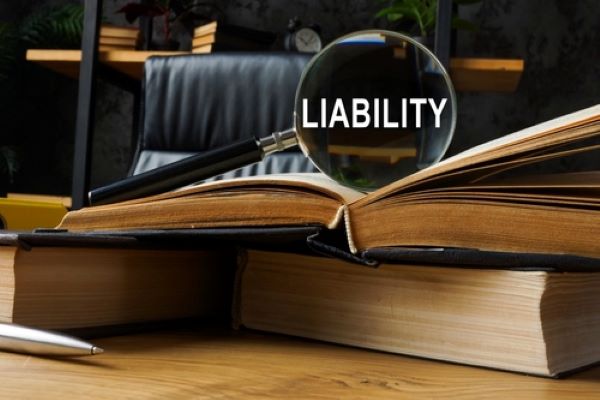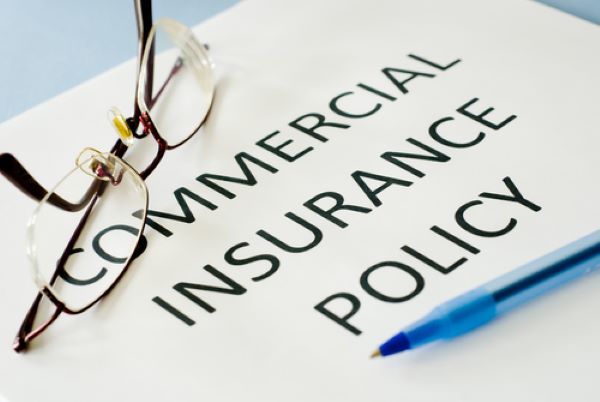 |
| By | December 15, 2022 |
Choosing an appropriate insurance policy for your business from the sea of options available can be quite overwhelming. Identifying the significant risks your company might face and deciding on the right policies requires diligence. Taking care of liabilities and associated risks is also an essential part of protecting your business. Liability is a term that means duty, obligation, or responsibility. It grows with the business, and depending on the type of business; you will need different insurance policies.
![Insurance-policy-Liability-Insurance-What-It-Is-and-How-It-Works-300x200[1] Insurance-policy-Liability-Insurance-What-It-Is-and-How-It-Works-300x200[1]](https://www.cellbrokerage.com/wp-content/uploads/Insurance-policy-Liability-Insurance-What-It-Is-and-How-It-Works-300x2001-1.jpg)
Liability insurance may covers the costs for which the insured party would be liable. It is a type of insurance that covers damages caused by the insured-the definition of “damages” varies depending upon the policy.
Liability coverage can be purchased with many different kinds of insurance policies. Understanding how liability coverage works is important to ensure you have enough protection for your unique situation.
Please keep reading to understand more about liability Insurance and what it covers.
What Is Liability Insurance?
Liability insurance is a type of insurance that helps protect you or your business when someone files a lawsuit or reports a complaint against you. Liability insurance may cover the costs that can arise from a claim against you. It also protects your business from lawsuits that may result from incidents on your premises or during the course of your operations.
Unlike other insurance policies, liability insurance does not pay the policyholder, but pays the third parties instead. For example, If you or one of your employees causes an accident or injures someone, liability insurance can help pay for their medical bills and any other expenses that arise.
How Does Liability Insurance Work?
Liability insurance is any insurance you purchase to protect others from the damages you may cause. Policies can be taken by anyone who drives a car, practices law, freelancers, doctors, or anyone who owns a business and runs a chance of getting sued by customers or clients.
Liability insurance is also known as “third-party” insurance because it covers damages if someone else is injured or suffers property damage. In this case, the first party is the insured, the second party is the insurance provider, and the third party is the person filing the claim.
Several factors, such as the type of business, claims history, location, number of employees, and years in business, can influence the type of liability coverage you can opt for.
Consulting insurance professionals to understand the local laws and regulations will help you make informed decisions for your business.
Types of Liability Insurance
Liability insurance covers business owners, professionals, and self-employed people against claims due to malpractice, negligence, and other damages-many types of liability insurance can suit different situations. Read on to know more about the major types of liability insurance:
General Liability Insurance
General liability insurance protects a business from claims of bodily injury, property damage by customers and clients, and reputational harm.
Here is an example. When your company is sued for copyright infringement, then liability insurance can cover the legal costs to defend your business.
If a client or customer falls and gets hurt on your premises, your liability insurance, which covers the bodily injury, can help pay their medical bills.
Professional Liability Insurance
Professional liability insurance is also called errors and omissions insurance. It helps businesses or professionals against claims of negligence and errors by clients and customers. This type of liability insurance may cover work oversights, missed deadlines, undelivered or under-delivered services, and negligence.
You should consider purchasing professional liability insurance if you offer professional services, provide professional advice to clients, or are on a contract with the clients.
Employer Liability Insurance
This insurance can help protect your company by covering damages costs and costs involved in defending against claims of wrongful termination, discrimination, and harassment. It also protects businesses from liabilities arising from employee injury or death.
Employee liability insurance is a part of workers’ compensation. Workers’ compensation pays for medical bills or partially lost wages due to a work-related injury, whereas employee liability insurance covers the legal cost when an employee sues your company for injury or illness.
Commercial Auto Liability Insurance
If your company rents or leases vehicles, or if your employees drive the vehicles owned by your company, you may require this type of liability insurance. It helps cover the costs due to an employee’s fault in an accident of a car or truck you own and if people or their property is damaged in the accident.
Each state has different minimum liability insurance requirements for car insurance policies, but in general, you will need coverage for bodily injury and property damage.
Product Liability Insurance
Product liability insurance is typically purchased by manufacturers, retailers, or wholesalers. It covers liabilities arising from customer damage or injury caused by a product manufactured by the company. It assists in covering customer medical costs, legal costs to defend your business, and any settlements reached against your company.
Directors and Officers Insurance
This type of liability insurance protects the directors and officers of large companies against claims made by employees, competitors, suppliers, customers, shareholders, or any other stakeholder. The insurance will cover the costs arising from legal judgments of issues related to hiring and firing decisions, confidential information leaks, negligence errors, and wrong investment decisions.
You can also add other types of insurance policies which you think might protect you or your business better. Moreover, like any different insurance policy, it does not cover criminal acts even if the insured party is found legally responsible.
Taking the advice of insurance specialists like Cell Brokerage Risk Management Group will help you understand what policies are the best for you. We follow a seamless process to come up with the right policies for you and your business. Talk to us today and get the best advice for all your insurance needs!









